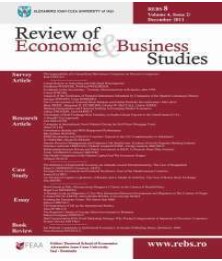MACROECONOMIC DETERMINANTS OF SHADOW BANKING – EVIDENCE FROM EU COUNTRIES
MACROECONOMIC DETERMINANTS OF SHADOW BANKING – EVIDENCE FROM EU COUNTRIES
Author(s): Teodora Cristina Barbu, Iustina Alina Boitan, Sorin-Iulian CioacăSubject(s): National Economy, Supranational / Global Economy, Business Economy / Management, Financial Markets
Published by: Editura Universităţii »Alexandru Ioan Cuza« din Iaşi
Keywords: shadow banking; monetary funds; macroeconomic determinants; panel data;
Summary/Abstract: Shadow banking is a topical, debated issue on the agenda of national and European macro-prudential regulatory and supervisory authorities. It is generally accepted that shadow banks and the traditional banking system have some core functions in common, such as credit and maturity transformation, and the exposure to similar risks. However, the tight banking regulations and the decreasing trend recorded by interest rates in the postcrisis period create prospects for shadow banking sector growth. Against this background, the present paper aims at investigating the particular impact that shadow banking activity exerts on macroeconomic fundamentals. The analysis covers 15 European Union countries, including Romania, during the period 2008 – 2015, using quarterly data. Shadow banking system is used as a proxy by monetary funds, due to breaks in the series or unbalanced number of observations across selected countries. By employing panel regression, it was found that the shadow banking total assets’ variation is negatively influenced by the GDP growth, short term interest rates, M2/GDP ratio and the ratio of investment funds’ assets in GDP, and positively determined by stock index dynamics and long term interest rates. The findings sustain the literature’s point of view.
Journal: Review of Economic and Business Studies (REBS)
- Issue Year: 2016
- Issue No: 18
- Page Range: 111-129
- Page Count: 19
- Language: English

